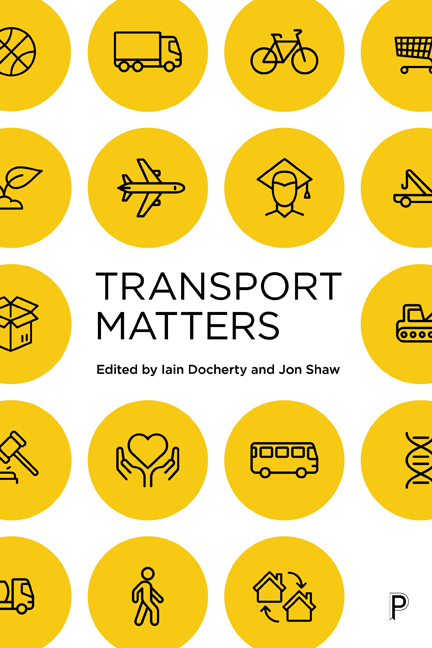6 - The Gentle Tyranny of Cost–Benefit Analysis in Transport Appraisal
Published online by Cambridge University Press: 03 March 2021
Summary
Introduction
Jonathan Swift's Modest Proposal warned us as early as 1729 of the dangers of relying on narrow economic criteria to make seemingly informed decisions, and as Adams (1974) pointed out over four decades ago, similar problems are evident in the application of simplistic cost–benefit analysis (CBA) approaches in the appraisal of public transport projects.
Since the 1950s onwards, transport appraisal in the UK has been gradually developed and refined, initially to support the building of the highway network and later to include public transport projects and even other modes such as cycling. The current appraisal system in England (broadly comparable approaches are used elsewhere in the UK) is documented in the Web-based Transport Appraisal Guidance (WebTAG) (Department for Transport (DfT) 2017). WebTAG uses CBA within a broader multi-criteria analysis (MCA) framework. The process is described by its proponents as the leading appraisal process in the world (Mackie et al 2014) and certainly it is the most ‘well developed’ in terms of number of pages of guidance. But, beyond this, there is much debate: the practice on the ground, and the state of public transport, pedestrian and cycling networks in the UK suggest that the decision-making process has not led to the delivery of a balanced range of transport infrastructure projects across the modes.
CBA holds an uneasy place in transport planning, sometimes used as a ‘political football’ to suit different ends at different times. Projects with seemingly obvious benefits, which are potentially popular with the public, can be refused by project promoters due to perceived low benefit–cost ratios (BCRs); other projects with low BCRs can be supported by project promoters, perhaps with the BCRs manipulated to give higher results. Equally, projects with high BCRs may be very controversial with the public, but supported through the appraisal process. The MCA process itself can be viewed as weakly applied due to its checklist nature, and because the quantified impacts are often given priority over the qualitative ones. The views of different actors are also given little influence in the final decision. It seems an appraisal process has developed to allow ease of centralised funding prioritisation and allocation, rather than one to respond to the plurality of transport problems and opportunities found in different contexts.
- Type
- Chapter
- Information
- Transport Matters , pp. 131 - 152Publisher: Bristol University PressPrint publication year: 2019



